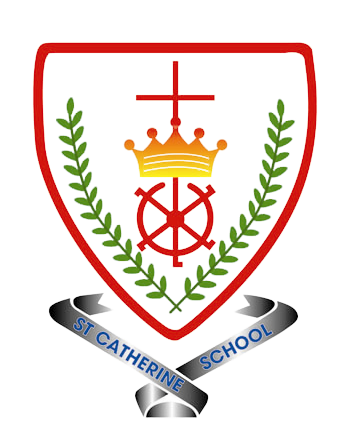British Values
At St Catherine's we follow the DfE guidance on British values;
“To create and enforce a clear and rigorous expectation on all schools to promote the fundamental British values of democracy, the rule of law, individual liberty and mutual respect and tolerance of those with different faiths and beliefs.”
At St. Catherine's these values are reinforced regularly and in the following ways:
Democracy
Democracy runs throughout the whole school. Pupils have the opportunity to have their voice heard through our School Council and Pupil questionnaires. The elections of the School Council, and Prefects are based on pupil votes.
The Rule of Law
The importance of Laws, whether they be those that govern the class, the school, or the country, are consistently reinforced throughout regular school days, as well as when dealing with behaviour and through school assemblies.
Pupils are taught the value and reasons behind laws, that they govern and protect us, the responsibilities that this involves and the consequences when laws are broken.
Visits from authorities such as the Police, Fire Service, Lifeguards etc. are regular parts of our calendar and help reinforce this message.
Individual Liberty
Within school pupils are actively encouraged to make choices, knowing that they are in a safe and supportive environment. As a school we educate and provide boundaries for young pupils to make choices safety, through the provision of a safe environment and empowering education.
Pupils are encouraged to know, understand and exercise their rights and personal freedoms and advised how to exercise these safely, for example through our E-Safety and PSHE lessons.
Whether it be through choice of challenge, of how they record, of participation in our numerous extracurricular clubs and opportunities, pupils are given the freedom to make choices.
Mutual Respect
Part of our school ethos and behaviour policy has revolved around Core Values such as ‘Respect’, and pupils have been part of discussions and assemblies related to what this means and how it is shown.
Displays around the school promote our Values for others and this is reiterated through our classroom and learning rules, religious education as well as our behaviour policy.
British Values through the Curriculum
Interwoven within the curriculum in a range of curriculum areas are planned opportunities to teach the values of our society. Some examples are;
- History: How we influence democracy is explored though the curriculum and assemblies. This includes looking at historical figures such as Nelson Mandela and Gandhi and exploring the effectiveness of different approaches. The Rule of Law and the importance of laws, whether they be those that govern the class, the school, or the country is consistently reinforced at St Joseph’s. Britain and its influence in modern times are aspects woven into our imaginative learning projects. Pupils are encouraged to know, understand and exercise their rights, whilst understanding that with exercising their rights comes responsibility.
- Geography: We ensure that pupils have a better understanding of what Britain is; learning more about its capital cities and counties, its rivers and mountains, and where Britain is in relation to the rest of Europe and other countries in the world.
- Music: We are reviewing the music curriculum to include the study of British composers and their global influence.
- Art: The study of how British artists influence others around the world.
- Religious Education: Gaining a greater understanding of religious diversity and practices which covers key religions represented in the UK. All pupils have the opportunity to visits places of worship that are important to different to faiths. St Joseph’s Catholic Primary School actively promotes diversity through celebrations of different faiths and cultures.
- Physical Education: Promotion of the concept of “fair play”, following and developing rules, inclusion, celebrating and rewarding success, being magnanimous in defeat and participation in activities that promote kinship and affiliation with others.
- Computing: Pupils are also taught about respect and bullying in the online world through our learning platform and though regular e-safety lessons.
- School Council: Promotion of democratic processes, fostering the concept and application of freedom of speech and group action to address needs and concerns. Key to this is the concept of holding others to account, including those in positions of influence and authority.
- Educational visits: Our broad range of educational visits and experiences outside of the classroom equips our pupils with the skills to make a positive contribution to their community as equal citizens, as well as being able to look at British heritage in more depth. Recent visits have included a visit to the Museum of Childhood, the Natural History Museum, the Jewish museum and the Imperial War Museum.
- Community Events: We work closely with charities and organisations such as ‘The British Legion’, CAFOD, the Catholic Children’s Society and the Barnet Mayor’s chosen charities. We encourage our pupils to interact with pupils from other schools, both locally and further afield, though organised activities.
Tolerance of those of Different Faiths and Beliefs
This is achieved through enhancing pupils’ understanding of their place in a culturally diverse society and by giving them opportunities to experience such diversity. Assemblies and discussions involving prejudices and prejudice-based bullying have been followed and supported by the learning in RE and PSHE.
The school has a foreign language teacher and all pupils learn a foreign language, beginning in Nursery. We acknowledge and celebrate the many languages within the school community through displays and celebrations such as International Day.
Members of different faiths or religions are invited in to share their knowledge to enhance the learning within classes and the school. Pupils also learn about other faiths as part of the R.E. curriculum. Trips to mosques, temples, synagogues as well as churches are woven into the curriculum.
